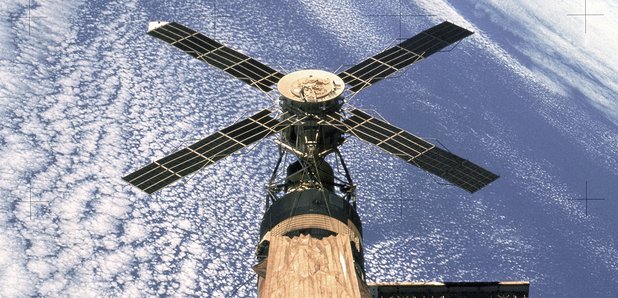
Dean Dunham 9pm - 10pm
31 March 2018, 21:00 | Updated: 31 March 2018, 21:05

Just when you thought it was safe to go out in the garden, after the Beast from the East and the Pest from the West, we discover that a Chinese space station called the Tiangong-1, is falling from the sky.
China's top scientists calculate that it will re-enter the earth's atmosphere at precisely 11:30am BST, on Easter Sunday.
Or it could be sometime on Saturday, or conceivably on Monday. They really don't know. And they don't know where it will land either.
Apart from that, they have everything under control.
Tiangong is Chinese for “heavenly place” and that is where it will send you if it hits you in the face.
But don't worry – if the impact doesn't kill you, it has a number of highly toxic chemicals on board that should do the job, if a little more slowly.
It has Hydrazine on board, for instance.
It is a chemical included in rocket fuel that causes irritation of the eyes and throat, and dizziness.
You what else causes dizziness? Getting bonked on the noggin by ten tonnes of space junk going at 18,000 miles an hour.
Areas that could be hit include, but are not limited to, New York, Barcelona, Beijing, Chicago, Istanbul, Rome and Toronto.
Without actually looking it up and doing the maths, I can estimate that's about 100m people in the firing line.
There's more: when the station does eventually enter the atmosphere it could unleash a 'series of fireballs' and there is no good scenario that you can write that includes the word “fireballs”.
If scientists do not yet know where the space station will crash, they certainly don't know where the fireballs will land, but other than that, there's nothing to worry about.
Tiangong-1 is now rubbing against the Earth's outer atmosphere and it is dropping out of orbit by about 2.5 miles a day, unless it is crash landing at the moment I am writing this.
At about 43 miles above the surface, it will begin its re-entry.
That word “re-entry” sounds like an orderly process but this will be a careering tangle of red hot metal, like a thunderbolt from a furious mythical god.
Fortunately, the European Space Agency said the chances of it hitting an actual human are small.
The odds of being struck by space debris are one in 1.2 trillion, said an ESA space debris expert, which is an actual job, and not just something I made up.
Happily, nobody has ever died from being hit by space junk falling back to Earth.
There was an incident in a Western Australian town called Esperance in 1974, when a piece of the Skylab fell to the ground and the local authorities fined NASA for littering.
NASA refused to pay. Maybe they claimed it wasn't littering, they had merely parked it there.
I hope the Chinese don't park anything near you this Easter.
Better stay indoors, just in case.